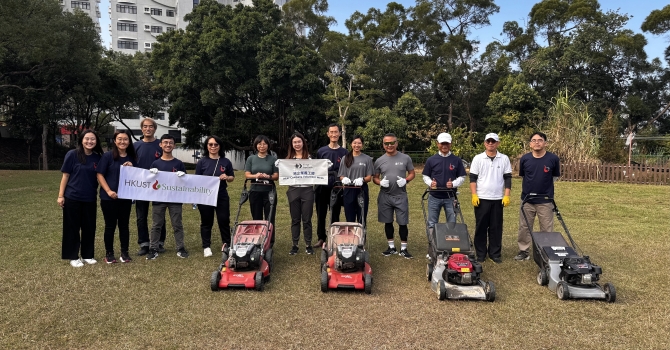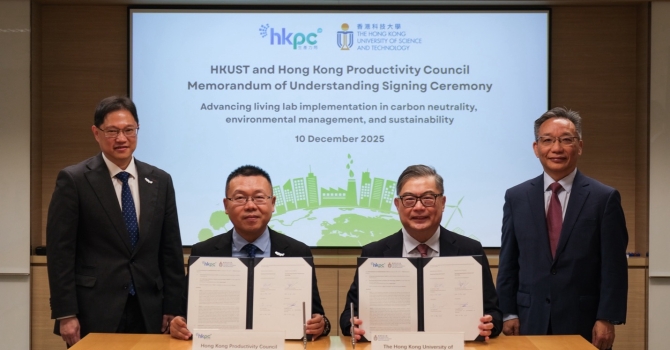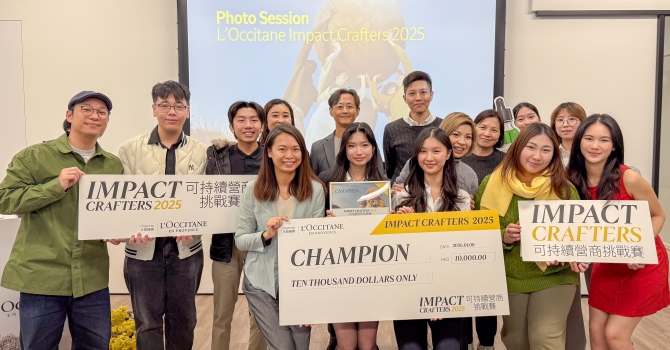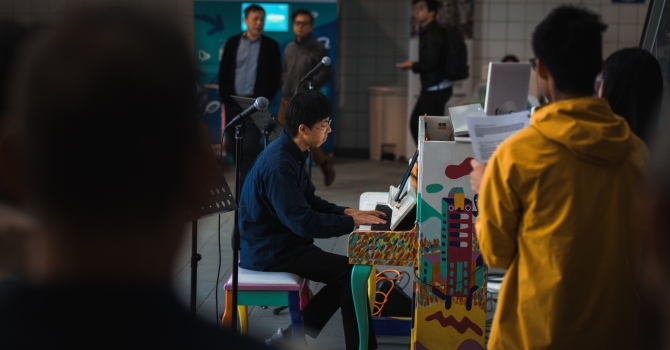Every Action Counts: Educating the Community on Water, Energy, and Waste Management
From November 15 to December 13, 2024, as chair of the Jockey Club Sustainable Campus Consumer Programme’s (JCSCCP) Steering Committee, we led the Every Action Counts 4-Week Challenge, engaging students from HKUST and seven other public universities in Hong Kong to learn about good water management, smart energy, and waste reduction. Through weekly quizzes, newsletters, infographics, and physical models, the campaign promoted sustainable practices, aligning with SDGs 6 (Clean Water and Sanitation), 7 (Affordable and Clean Energy), and 12 (Responsible Consumption and Production).
Weeks 1–3 Overview: Students explored sustainability through personality quizzes, nature-inspired art, and global practices, building awareness of resource conservation, including water-saving habits like shorter showers and reducing waste.
Week 4 (December 6): We’re All In This Together. This culminating week focused on campus sustainability initiatives, delivered through a mini quiz, newsletters, and the Hong Kong Sustainable Campus Consortium (HKSCC) website, educating students on:
- Water Management: Behavior-activated showerheads in selected HKUST halls use color indicators (red for high usage) to promote mindful showering, achieving a 14.2% freshwater reduction across 21 residential buildings on eight university campuses. Students learned practical tips, such as limiting showers to 5 minutes and fixing leaky faucets, to conserve Hong Kong’s precious freshwater resources.
- Smart Energy: Smart electricity meters in selected halls provide real-time IoT data, encouraging students to monitor and reduce usage (e.g., turning off unused devices). This promotes energy efficiency in campus systems, supporting sustainable resource use.
- Waste Management: The JCSCCP Lunchbox Lending Programme enables borrowing reusable meal containers from vending machines, saving caterer fees and diverting over 50,000 disposables from landfills across eight universities. This fosters a circular economy, reducing waste that impacts water ecosystems.
Infographics illustrated Hong Kong’s water, energy, and waste consumption patterns, offering actionable steps like installing low-flow showerheads, adopting energy-efficient habits, and using reusable containers. A physical model contrasted efficient practices (e.g., mindful showering, reusable systems) with wasteful habits (e.g., excessive water use, single-use plastics). Apart from the online programme, HKUST held campus display showing physical models demonstrating water saving practices including efficient irrigation, rainwater harvesting, and use of water-efficient appliances.
Targeting university students as local community members, the campaign empowered participants to adopt and share sustainable practices, fostering collective responsibility for water, energy, and waste management in Hong Kong’s resource-constrained environment.



